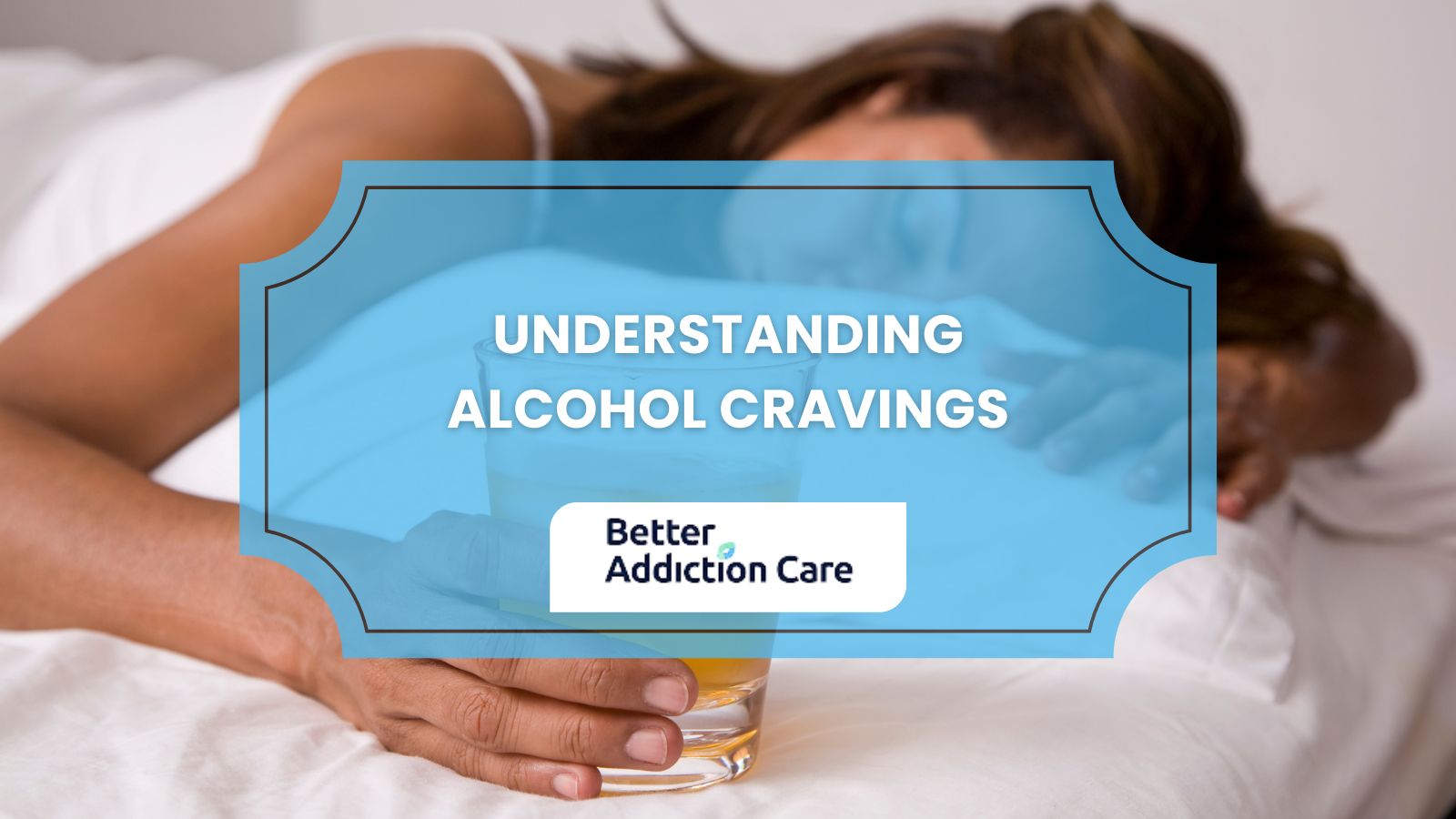What is a Closet Alcoholic? Signs, Reasons and How to help a Hiding Drinker
A closet alcoholic is someone who hides their alcohol consumption and addiction from others, often maintaining a façade of normalcy while secretly struggling with dependence You are a closet alcoholic if you hide your alcohol addiction from others, consume alcohol in secrecy, and make efforts to conceal your habits from your partner, friends, family, and coworkers. This involves hiding alcohol bottles, drinking alone, or making excuses to leave events early to drink privately.
You are also a closet alcoholic if you find yourself drawn to the bottle when alone, with whispers of worry intensifying in these solitary moments. If the boundary between social drinking and dependency has become indistinguishable in your life, and alcohol has transformed from an occasional comfort to a daily necessity, these are significant red flags. Hiding bottles, drinking in secret, and downplaying consumption to friends and family indicate problematic alcohol use. Confronting thoughts in private reveals an uncomfortable truth: a temporary escape weaves itself into the fabric of daily routine.
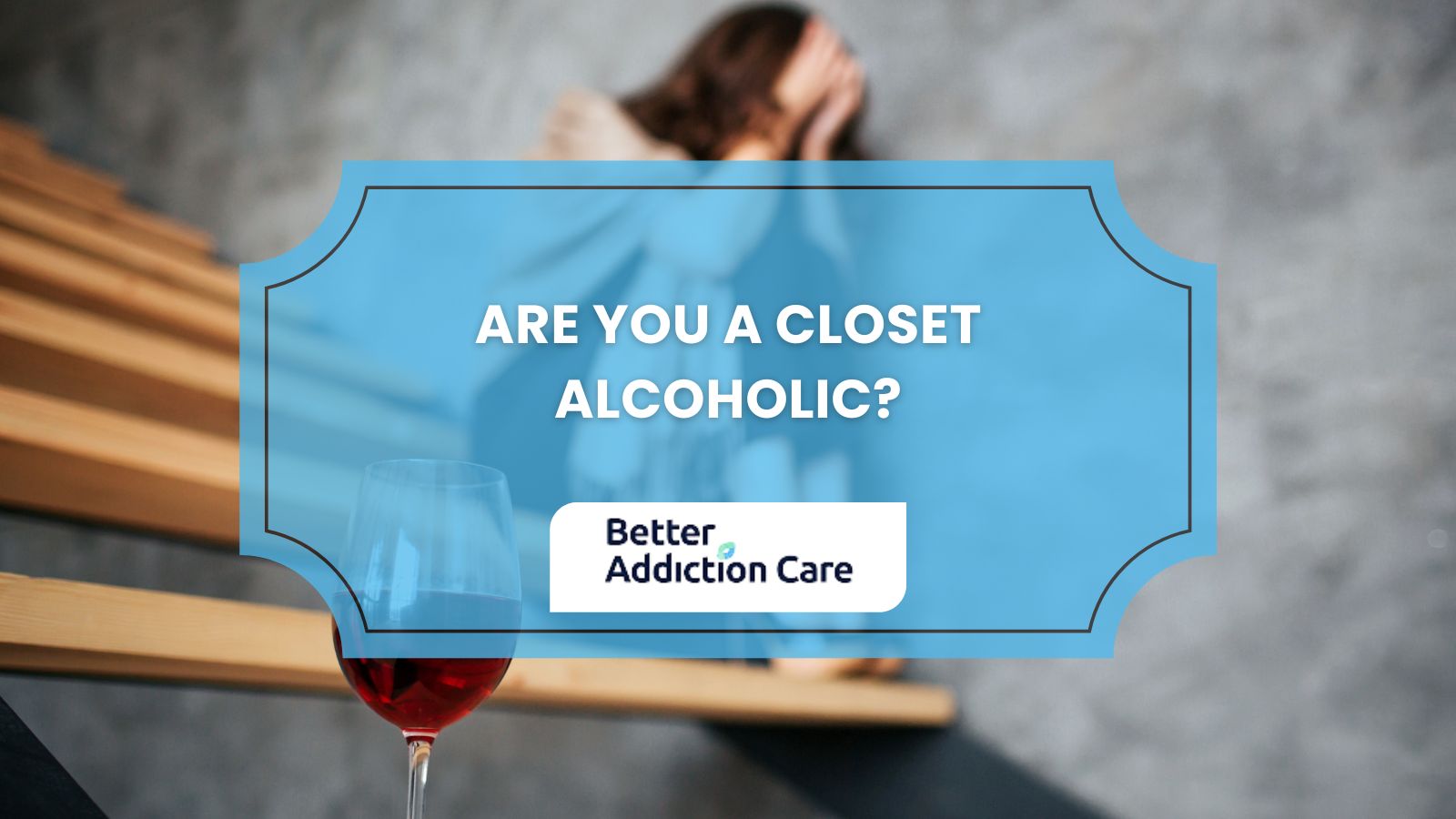
A closet alcoholic is someone who hides their alcohol consumption and addiction from others, often maintaining a façade of normalcy while secretly struggling with dependence You are a closet alcoholic if you hide your alcohol addiction from others, consume alcohol in secrecy, and make efforts to conceal your habits from your partner, friends, family, and coworkers. This involves hiding alcohol bottles, drinking alone, or making excuses to leave events early to drink privately.
You are also a closet alcoholic if you find yourself drawn to the bottle when alone, with whispers of worry intensifying in these solitary moments. If the boundary between social drinking and dependency has become indistinguishable in your life, and alcohol has transformed from an occasional comfort to a daily necessity, these are significant red flags. Hiding bottles, drinking in secret, and downplaying consumption to friends and family indicate problematic alcohol use. Confronting thoughts in private reveals an uncomfortable truth: a temporary escape weaves itself into the fabric of daily routine.
This pattern of concealed drinking is particularly dangerous because it delays necessary treatment. However, recognizing these signs of hidden alcoholism isn't a mark of failure, it's the courageous first step toward reclaiming control and seeking the professional help you deserve.
According to the 2023 National Survey on Drug Use and Health (NSDUH), 29,544,000 people in the United States (10.6% of the population) have an Alcohol Use Disorder (AUD).
Common signs of a closet alcoholic include secretive behavior, increased tolerance, neglecting responsibilities, physical symptoms, changes in mood or behavior, relationship strain, legal issues, failed attempts to control consumption, isolation, defensive behavior, increased alcohol intake, ritualistic drinking, financial problems, health issues, and preoccupation with alcohol.
To face the possibility of being a closet alcoholic, acknowledge uncomfortable truths about drinking patterns, such as hiding alcohol and anxiety without it. Seek help by building a support network, confiding in trusted individuals, or joining groups like Alcoholics Anonymous. Practice self-compassion, celebrate achievements, prioritize well-being, and develop stress management techniques to create a future based on sobriety and strength.
What Are the Signs of A Closet Alcoholic?
The signs of a closet alcoholic include secretive drinking habits, building tolerance to alcohol, avoiding responsibilities, exhibiting physical withdrawal symptoms, and demonstrating mood swings or personality changes. Understanding these warning signs helps identify when someone is struggling with hidden alcohol abuse.
Lisetd below are 15 common signs of a closet alcoholic.
-
Secretive Behavior: Concealing alcohol use, frequency, or quantity through hidden consumption or dishonesty to avoid detection.
-
Increased Tolerance: Requiring escalating amounts of alcohol to achieve intoxication or desired effects due to physiological adaptation.
-
Neglecting Responsibilities: Failing to meet obligations at work, home, or school, as alcohol use takes precedence over duties.
-
Physical Symptoms: Observable bodily changes like tremors, slurred speech, or frequent hangovers resulting from chronic alcohol consumption.
-
Changes in Mood or Behavior: Uncharacteristic irritability, depression, or volatility directly tied to alcohol use patterns.
-
Relationship Strain: Persistent conflicts, withdrawal, or emotional distance from loved ones caused by alcohol-related actions.
-
Legal Issues: Repeated legal repercussions, such as driving under the influence (DUIs) or public intoxication charges, stemming from alcohol misuse.
-
Attempts to Control or Cut Back: Persistent failure to limit or stop alcohol use despite repeated efforts and clear intentions.
-
Isolation: Intentional withdrawal from social environments to enable solitary drinking or avoid judgment.
-
Defensive Behavior: Hostile or dismissive reactions to concerns about alcohol use are used to avoid responsibility or change.
-
Increased Alcohol Consumption: Progressive rise in alcohol intake that exceeds personal intentions and social norms.
-
Ritualistic Drinking: Compulsive adherence to fixed patterns or routines surrounding when, where, or how alcohol is consumed.
-
Financial Problems: Neglect of financial obligations due to excessive spending on alcohol, resulting in debt or instability.
-
Health Issues: Physical or mental health decline is directly linked to prolonged and excessive alcohol consumption.
-
Preoccupation with Alcohol: Dominance of thoughts, plans, and decisions by the need or desire to drink, overriding other priorities.
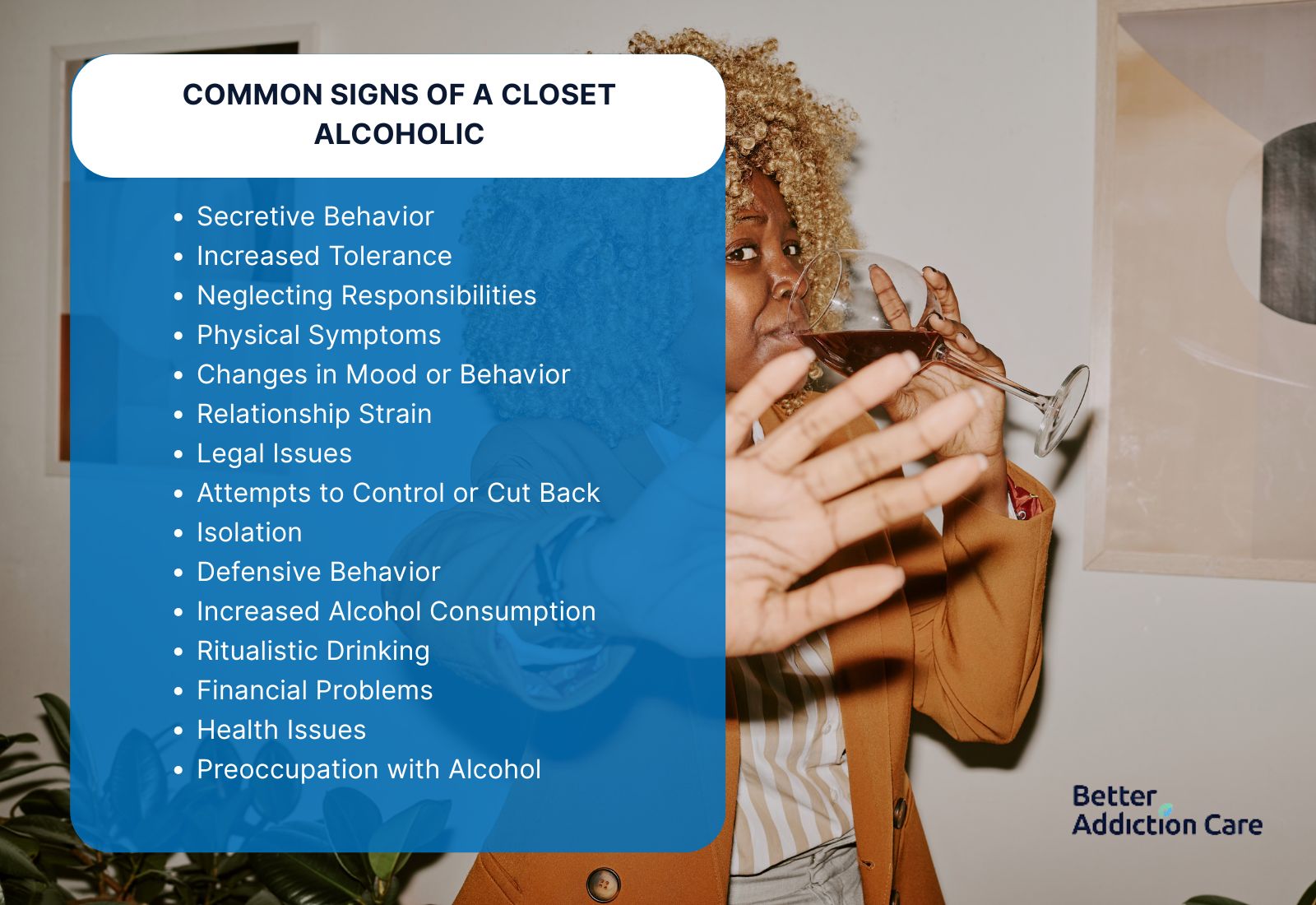
Are There Hidden Physical Signs of Alcoholism?
Yes, there are hidden physical signs of alcoholism. The hidden physical signs of alcoholism include yellowing skin and eyes (jaundice), persistent nausea, vomiting, abdominal pain, changes in bowel movements, memory problems, cognitive decline, nerve damage, elevated blood pressure, irregular heartbeat, unexplained weight loss, blood vessel patterns on the skin, redness in the palms, and tremors.
Alcoholism manifests through gradual liver damage, resulting in conditions like cirrhosis, alcoholic hepatitis, and fatty liver disease. Jaundice, characterized by yellowing of the skin and eyes due to bilirubin buildup, signals serious liver dysfunction from alcohol abuse.
Alcohol consumption frequently irritates the gastrointestinal system, potentially causing pancreatitis, ulcers, and gastritis (stomach lining inflammation). Warning signs include nausea, vomiting, abdominal pain, and bowel movement changes, which are not immediately associated with drinking habits.
Long-term alcohol use leads to neurological complications, including memory problems, cognitive impairment, and peripheral neuropathy (nerve damage). These symptoms typically begin mildly and progressively worsen, going unrecognized as alcohol-related issues. Additionally, chronic drinking directly impacts cardiovascular health by elevating blood pressure, causing heart rhythm abnormalities, and increasing overall heart disease risk.
Are There Hidden Physical Signs of Alcoholism?
Yes, there are hidden physical signs of alcoholism. The hidden physical signs of alcoholism include yellowing skin and eyes (jaundice), persistent nausea, vomiting, abdominal pain, changes in bowel movements, memory problems, cognitive decline, nerve damage, elevated blood pressure, irregular heartbeat, unexplained weight loss, blood vessel patterns on the skin, redness in the palms, and tremors.
Alcoholism manifests through gradual liver damage, resulting in conditions like cirrhosis, alcoholic hepatitis, and fatty liver disease. Jaundice, characterized by yellowing of the skin and eyes due to bilirubin buildup, signals serious liver dysfunction from alcohol abuse.
Alcohol consumption frequently irritates the gastrointestinal system, potentially causing pancreatitis, ulcers, and gastritis (stomach lining inflammation). Warning signs include nausea, vomiting, abdominal pain, and bowel movement changes, which are not immediately associated with drinking habits.
Long-term alcohol use leads to neurological complications, including memory problems, cognitive impairment, and peripheral neuropathy (nerve damage). These symptoms typically begin mildly and progressively worsen, going unrecognized as alcohol-related issues. Additionally, chronic drinking directly impacts cardiovascular health by elevating blood pressure, causing heart rhythm abnormalities, and increasing overall heart disease risk.
What Are Common Reasons for Being a Closet Alcoholic?
Some common reasons for being a closet alcoholic include intense feelings of shame, fear of professional consequences, persistent denial about addiction severity, and pressure to maintain social appearances. Many individuals hide their drinking due to concerns about disappointing loved ones, deep-seated self-deception, increasing isolation, and experiencing uncomfortable cognitive dissonance.
Youth alcohol use is a concern because it is done sometimes secretly between 2021 and 2024, 7% of 7th graders,15% of 9th graders, 23% of 11th graders, and 29% of students in alternative programs reported recent alcohol or drug use. Showing the prevalence of alcohol addiction centers in California.
Listed below are 8 common reasons for being a closet alcoholic in detail.
-
Shame and Stigma: Internalized guilt and fear of judgment rooted in societal beliefs that addiction reflects moral failure or personal weakness. According to Thomas, T.’s 2019 study, ‘Closet drinkers: Alcohol use disorder among women in Delhi, ’ societal stigma forces female drinkers to conceal their alcohol consumption. This study contributes to the UN Sustainable Development Goal, focusing on good health and well-being.
-
Fear of Consequences: Avoidance of potential social, professional, or legal repercussions by concealing alcohol use.
-
Denial: Refusal to acknowledge the severity of drinking behavior despite mounting evidence of harm.
-
Self-Deception: Creation of rationalizations or false narratives to downplay alcohol dependence and maintain a sense of control.
-
Pressure to Maintain Appearances: Intense need to appear stable, successful, or in control, leading to concealment of alcohol-related struggles.
-
Fear of Disappointing Others: Desire to protect loved ones from worry, shame, or hurt by hiding the reality of addiction.
-
Isolation: Withdrawal from authentic connection to protect the secret of alcohol use and avoid vulnerability.
-
Cognitive Dissonance: Psychological discomfort caused by conflicting beliefs, knowing alcohol use is harmful, while continuing the behavior, leading to secrecy.
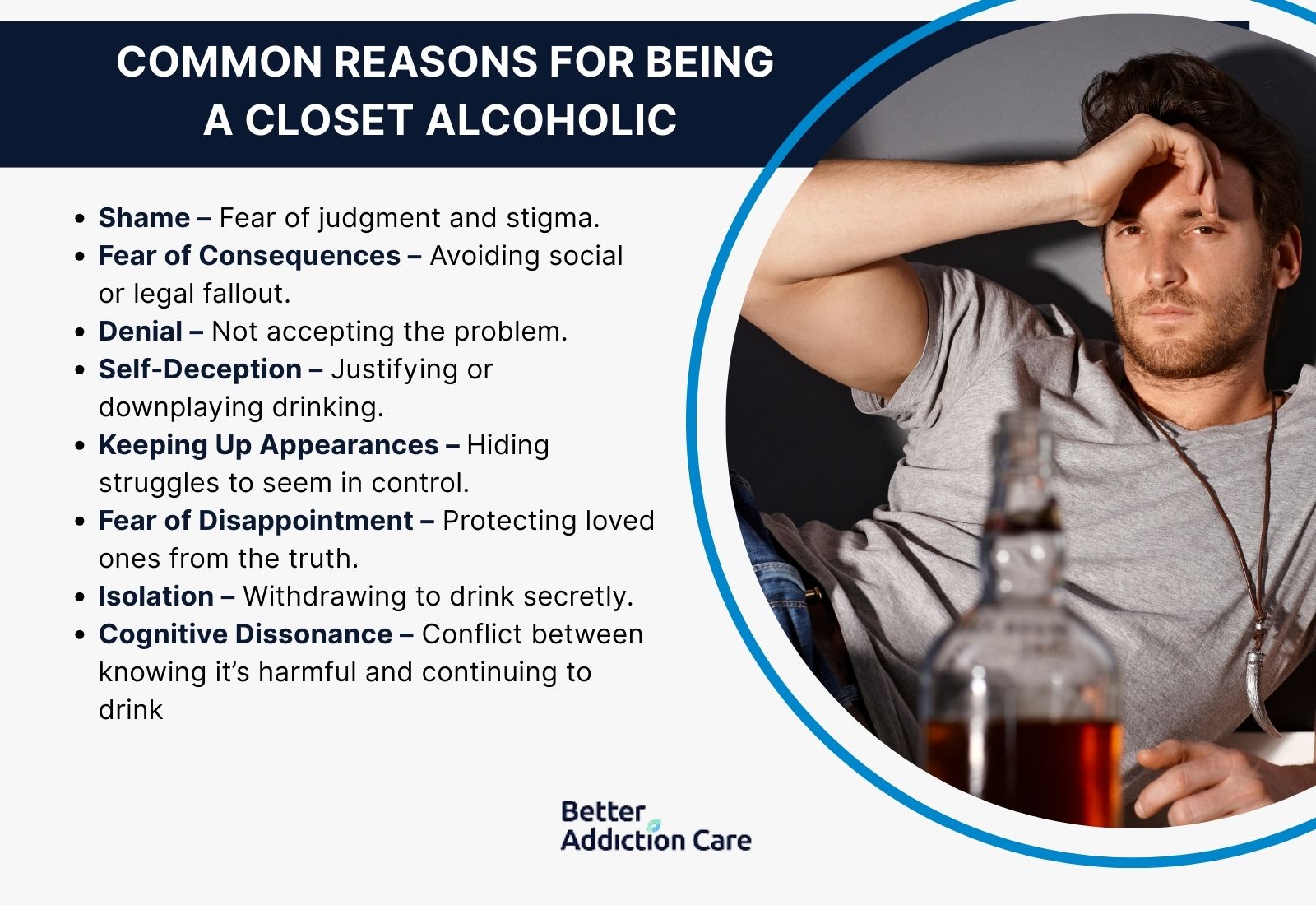
How to Face the Fact That You Might Be a Closet Alcoholic?
To face the fact that you might be a closet alcoholic requires acknowledging uncomfortable truths about your drinking patterns and their impact on your life. Recognizing behaviors like hiding alcohol, drinking alone, lying about consumption, or feeling anxious when alcohol isn't available signals you're beginning to confront reality.
After acknowledging potential alcoholism, seeking help becomes the next critical step. Build a support network that understands your challenges, offers encouragement, and provides practical recovery guidance. Consider confiding in trusted family members or friends, consulting a healthcare provider, or joining support groups like Alcoholics Anonymous, where others share similar experiences.
Practice self-compassion throughout the recovery journey. Healing remains non-linear; celebrate achievements and forgive missteps. Prioritize well-being, establish healthy boundaries, and develop effective stress management techniques. Rebuild life and create a future founded on sobriety, strength, and genuine happiness.
How to help a Hiding Drinker?
Helping someone who hides their drinking requires empathy, patience, and a thoughtful approach that avoids judgment while encouraging support and change.
Listed below are steps to helping a hiding drinker.
Start with Compassionate Conversation
- Choose a calm, private moment when they’re sober.
- Use “I” statements like “I’m worried about you” instead of accusations.
- Avoid labels like “alcoholic” which can trigger defensiveness.
Understand Their Reasons
- Many hide drinking due to shame, fear of judgment, or denial.
- Recognize that secrecy often masks deeper emotional struggles like trauma or anxiety.
Offer Support, Not Ultimatums
- Let them know you’re there for them, no matter what.
- Suggest exploring treatment options together, like therapy, detox, or support groups.
- Be patient; change takes time and readiness.
Educate Yourself
- Learn about alcohol use disorder and hidden alcoholism to better understand their behavior.
- This helps you respond with insight rather than frustration.
Practice Self-Care
- Supporting someone with addiction can be emotionally draining.
- Set boundaries and seek support for yourself through counseling or peer groups.
How Does The CAGE Assessment Identify Closet Alcoholics?
CAGE assessment identifies closet alcoholics by detecting concealed patterns of problematic drinking through four targeted questions: efforts to cut down, annoyance at criticism, guilt about drinking, and use of alcohol as an eye-opener. Affirmative responses in the CAGE Assessment reveal internal conflict and hidden dependence, even when outward behavior appears controlled. This brief screening tool uncovers denial and secrecy common in closet alcoholism, prompting further evaluation.
What Is The Difference Between Alcoholism And Alcohol Addiction?
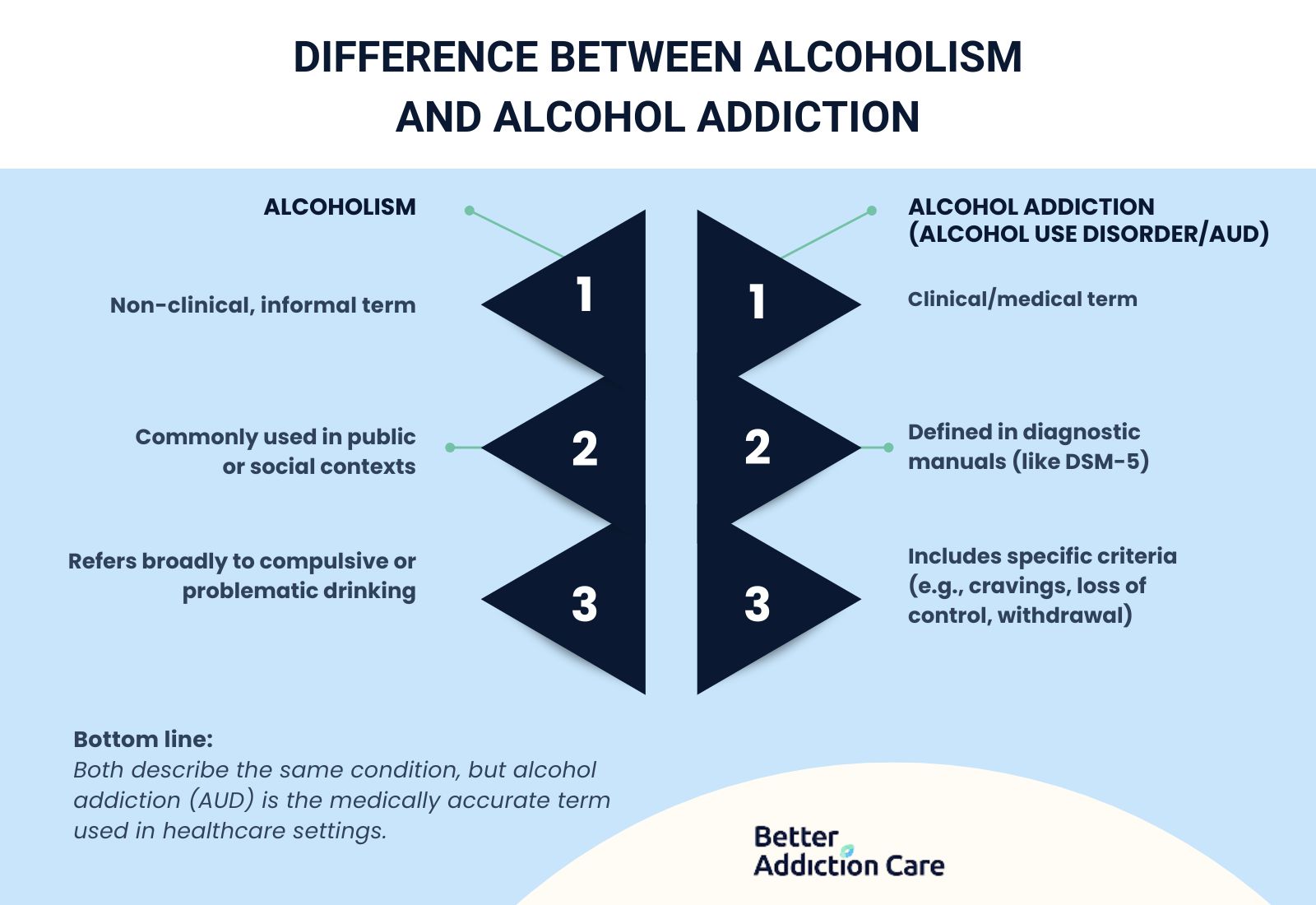
The difference between alcoholism and alcohol addiction lies in terminology and usage. "Alcoholism" is a non-clinical term commonly used in everyday language to describe chronic, compulsive drinking behavior. In contrast, "alcohol addiction" is a clinical term that falls under the diagnosis of Alcohol Use Disorder (AUD), a medical condition characterized by an impaired ability to stop or control alcohol use despite adverse consequences. Both terms refer to the same condition of persistent alcohol dependence.
According to the 2023 National Survey on Drug Use and Health (NSDUH), 224.3 million people ages 12 and older (79.1% in this age group) reported that they drank alcohol at some point in their lifetime.
Can The 12 Steps Of AA Help Treat Alcoholism?
Yes. The 12 Steps of Alcoholics Anonymous (AA) provide a structured, peer-supported framework that promotes abstinence, self-reflection, and accountability. Participation in AA and similar 12-Step Facilitation (TSF) programs leads to higher rates of continuous abstinence compared to other established treatments. These 12-step programs offer accessible, community-based support that reinforces long-term recovery from alcohol use disorder.
According to Kelly, J. F.’s 2020 study, ‘Alcoholics Anonymous and other 12-step programs for alcohol use disorder’, Alcoholics Anonymous and Twelve-Step Facilitation (AA/TSF) increases abstinence rates by 21% at 12 months compared to other treatments like cognitive behavioral therapy (CBT). Participants had 13% more abstinent days at 24 months and 7% more at 36 months. AA/TSF works as well as other treatments for reducing drinking intensity and related problems.
How Do Local Drug And Alcohol Rehab Facilities Help With Alcoholism?
Local drug and alcohol rehab facilities help with alcoholism by providing structured treatment programs tailored to individual needs. These facilities offer medically supervised detoxification services that safely manage withdrawal symptoms. They implement evidence-based therapies, including cognitive behavioral therapy and group counseling, that address both physical dependence and psychological aspects of addiction.
Rehabilitation centers deliver both individual and group therapy sessions to help patients identify triggers and develop healthy coping skills. Many include family therapy components to rebuild relationships damaged by alcoholism and strengthen support systems essential for recovery.
Effective recovery programs provide multiple care levels from 24-hour inpatient supervision to flexible outpatient options. Recovery success increases when patients connect with appropriate local drug and alcohol rehab facilities offering personalized treatment plans. These programs address co-occurring mental health conditions and provide comprehensive aftercare planning to maintain long-term sobriety through continued support and resources
Related Articles
Treatment Centers in Oregon







